A sampling — a sliver, really — of outrage from my Facebook feed.
- Why aren’t you outraged every single day?
- This should outrage everyone who reads it.
- Where’s the outrage about this guy??
- After a week of constant outrage and fear, I’m physically and emotionally ill.
- Study Finds People Are Morally Outraged by Those Who Decide Not to Have Kids
- Anti-pot billboards’ awkward race commentary sparks outrage
- Outrage As White Teacher Tells Black Student Her African Themed Prom Dress Is Too Tacky!
- Vanity Fair outrage: Michelle Obama, not Melania Trump, makes International Best Dressed List and…
- Stop Pretending to Be Outraged by Kathy Griffin’s Gross Video
Besides social media exposures to outrage, there are also real life exposures to outrage. I can’t remember a time of so much outrage. Can you?
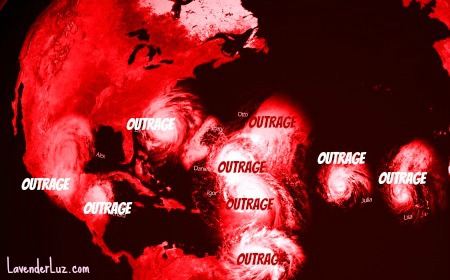
It’s outrageous.
We’re Being Played
The Internet has elevated an old currency to an unprecedented level of importance: our attention. Everyone wants it, including most of us (you may be exempt if you are purely a lurker). The reason we post things on the Internet is so that people will pay attention to us, to our words and ideas.
It’s one thing to court attention using above-board means. If people can opt in or opt out their attention based on fact and reason, that’s one thing. But increasingly, we are being manipulated — and we become participants in the manipulation — with sneakier, highly affective requests for engagement. Our emotions.
Why? Such tactics work. And they pay.
Tobias Rose-Stockwell has a fascinating article on Medium that shows
how the strategies of digitally capturing our attention have altered us — our lives, our media, and our worldview.
(bold mine.)
There is profit to be had when we are outraged. It’s in someone’s interest to get and keep us outraged.
Doesn’t that in itself make you want to figure out how to not succumb to the trickery? And how not to become complicit in perpetuating it?
Propaganda Ain’t New. It Ain’t Old, Either.
Tobias Rose-Stockwell says:
During the lead up to World War I, unchecked propaganda from all sides in the news reached a fever-pitch…By the end of the war it was clear that information warfare was a powerful weapon — it could raise armies, incite violent mobs, and destabilize whole nations.
(bold mine.)
You may think you’re immune to propaganda. I admit when I read the article I was thinking it was other people falling for emotional engagement, not me. But then I started paying attention to what I clicked on and what I wanted to Share. I found that I struggle to keep my mind my own. Do you?
Reacting from the Bottom of the Brain Stem
Facebook’s algorithm (and those of other social media platforms) enhances the effects of affective engagement by mapping our brains and then feeding each of us more of what we already consume. The algorithms find your patterns of engagement and create a “private personal pipeline of media just for you.”
The problem, says Rose-Stockwell, is that
By traditional journalistic standards, the [Facebook] News Feed Editor is a very, very bad editor… It doesn’t identify content that is profoundly biased, or stories that are designed to propagate fear, mistrust, or outrage.
Attention-seekers have responded to these lack of standards accordingly.
The News Feed Editor has literally changed the way news is written. It has become the number one driver of traffic to news sites globally, and that has shifted the behavior of content creators. This is the reason many of the news stories you see today lead with over-the-top, dramatic, attention-grabbing statements — they are trying to engage with you and rise above the competition.
Rose-Stockwell shares that tech ethicist Tristan Harris calls this phenomenon “a race to the bottom of the brain stem.”
That soft target plus our current climate of extreme partisanship make us complicit in our own emotional hijacking.
As the former head of content at a major millennial-focused publisher recently told me, “It’s not our job to challenge political opinions. It’s our job to ride your politics as far as we can.“
(bold mine.)
Sounds like a policy even non-millennial-focused news outlets like CNN, MSNBC and Fox News might also embrace.
The Counterintuitive Effect of Calm
But what if the way to reduce terrorism, for instance, was to stop being outraged by it, to stop spreading outrage about it? As Rose-Stockwell points out, “We have built an instant distribution system for [terrorism’s] actual intent — Terror.” He illustrates this point with a chart of New York Times coverage of all homicide deaths, claiming “profound asymmetry in coverage of terrorist attacks vs. other types of homicides.”
What if sacrificing our outrage began to cure our ills? If perception is reality, what if we purposefully shut off access to our outrage for those who seek to reach the bottom of our brain stem? What if we stop giving away the thing that’s being used against us? What if we tried to perceive things with less affect and more reason, and we responded with discernment?
Could changing our perception about terrorism also change the reality of terrorism?
Inserting a Permission Point
And what if we took the same non-outrage strategy with other -isms: racism, elitism, narcissism, despotism, nepotism, establishmentarianism, pick-your-own-ism? Like the non-violence ideology of Gandhi and Martin Luther King, Jr, could non-outrage be the subtle yet powerful stance that begins to transform things for the better? If we sacrifice our outrage, could we actually improve our lives and our world?
I’m not talking about ignoring wrongdoing. I’m talking about discerning. Discerning between actually taking steps to right a wrong, and simply spreading outrage within us and around us.
It’s the moment of discernment that makes the difference between perpetuating ripples of outrage and or defusing red hot anger and choosing instead to cultivate coolness, calmness.

I invite you to spend two weeks being more intentional about what you click on, what you share, what and whom you give access to your brain stem. Begin to notice if your emotions are being used without your knowledge, and take steps to insert your permission somewhere in the process.
At the very least, can we agree not to be the person who RH;PAC?

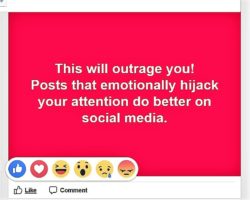

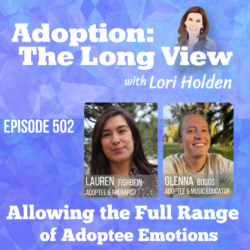
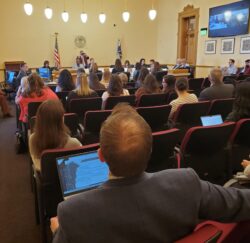
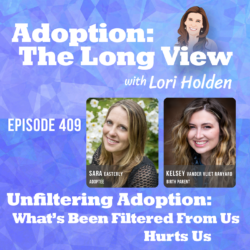
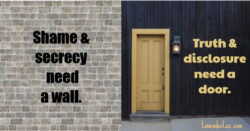
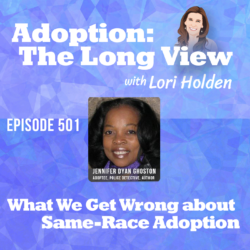

9 Responses
GOOD STUFF. I agree. I gave up newspapers long ago after I was grossly misquoted by the lazy journalist. People confuse “news” with marketing.
Like usual, you got me thinking. There’s a gut reaction we all go through when confronted by less-than-pleasant (or even pleasant) news. Throwing in provocative emotions (outrage! Joyous! Disgusting! Depressing!) adds to it because it also calls in our moral code to the news we are reading.
But I think you have a very valid point of stepping back, breathing and addressing the situation at hand in a thoughtful manner. Is it true? What are the facts? What’s the other side of the story? How can we work to bring change where the whole benefits?
Thanks for calling me out on my own outrage.
AMaybe there are some things we SHOULD be outraged about — such as the topic of your 31 post.
But you didn’t do it for clicks. You did it to process your emotions about the event. Your point wasn’t get get everyone else pointlessly outraged. Your call to action wasn’t to spread the outrage.
You’ve made me think.
Laughingly, only recently, I posted again on the same year-old article pointing to the harassment exploitation used on expectant mothers. Apparently, I have not resolved my own anger about this debauchery. I accept this position gladly, since my grieving seems to have no end. My question: If we experience outrage, does this require an attempt to mitigate the cause of the outrage, or is it simply a venting of awareness of evils, which over time, it appears to not have met with retribution and/or deterrence? You tell me. Also, seeking attention, I learned is very much needed where covert, chronic wrongs are committed. If I profit at all, it is in knowing that other mothers out there have had similar experiences like mine. I can find the tools for healing in their stories, as until I found these mothers online, I was lost and alone in my story. I learned to forgive myself over and over. Suggesting a sweeping generalization of either or is not a one- size- fits all system and is as destructive as the dogged attempts by the adoption industry to fit one child cavalierly with strangers. As you can see I am fixated where adoption is concerned. Oh well.
You are completely correct, I took a sales class awhile back that focused heavily on emotion to sell. The goal literally was to get people out of their rational brain into their emotional one because they were more likely to buy when emotional. Instead of explaining services we learned to pinpoint fears and explain how “others are frustrated by…” It’s made me wary of emotionally charged headlines.
Well, that’s grand. In my work I’ve been learning all about how to help traumatized children get INTO their rational brains (Wizard brain) and there are counterefforts to get people OUT (into the Lizard brain). Thanks for sharing this, Deb.
Oh yes, yes yes YES to this: “Discerning between actually taking steps to right a wrong, and simply spreading outrage within us and around us.” I see a LOT of meaningless spreading of things that don’t actually translate into action on Facebook, and it drives me crazy. And then it’s like, am I a bad person because I didn’t change anything to “Pray for Texas” or “Pray for Florida?” I think not because I don’t need public credit for caring about what happens to people in areas of disaster or wishing them well or donating to a cause, but Facebook creates a climate where everyone wants credit for everything, where you must “Hit LIKE and SHARE if you agree.” I always feel like those things are viruses. If not in the traditional sense, then at least a virus of time and opinion like you said, because they just get spread about and how many things are accurate? SO FEW. Titles get click-bait-y-er, and it skews everything. I love your last paragraph. I love the call to step back, to think, to really think about where you’re expending your outrage. I don’t think it’s necessarily bad in all cases, but the constant state and incitement can’t be good for us. Thank you for an incredible, thought-provoking post!
Most of my “outrage” posts are a passive aggressive response to nonsense other people are posting. I don’t want to confront them directly, unless there’s a good reason that they need to know that whatever they’re posting is wrong. But I want them to see that there is another view on the subject matter of that horrible meme they’re spreading around.
Generally, though, I am resistant to the outrage machine that is our media. But I know I’m in the minority.
there’s different kinds of outrage i think. i read the articles to find out if i need to be outraged and have been better about not just sharing click-bait if it’s just the sensationalized headline. i also don’t pay attention to the needs as much these days. But, I know it’s my privilege to be able to walk away from the noise. Many can’t and many feel attacked for good reason. In that context, outrage is needed from those of us who purport to support those groups. Be outraged at elected officials and actually pick up the phone. Social media sharing won’t get things done. Voting and expressing opinions to those in office might.